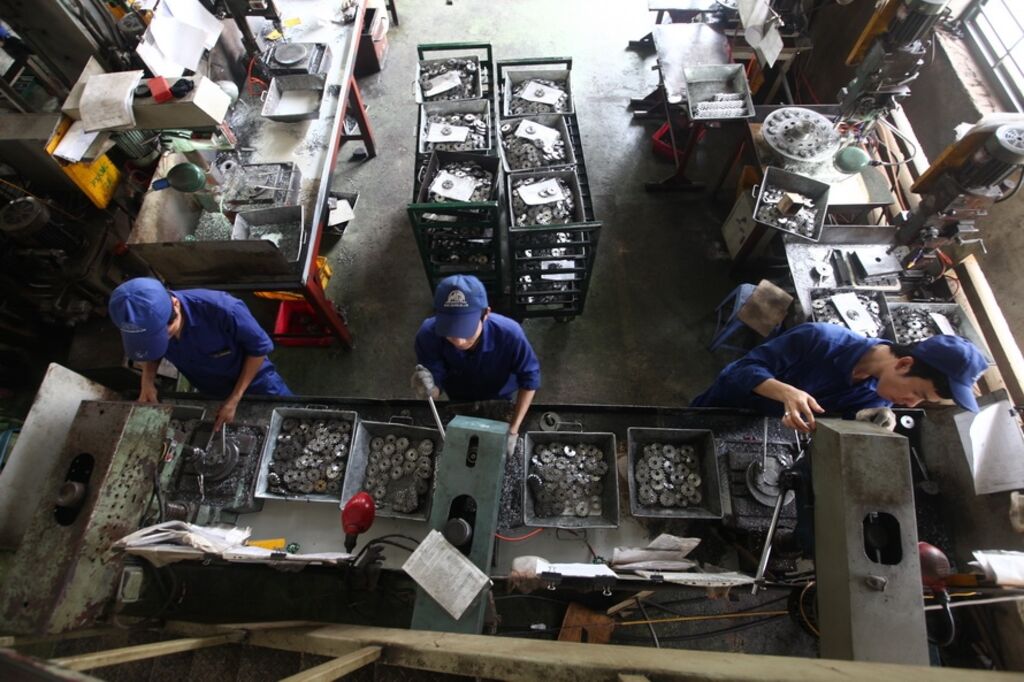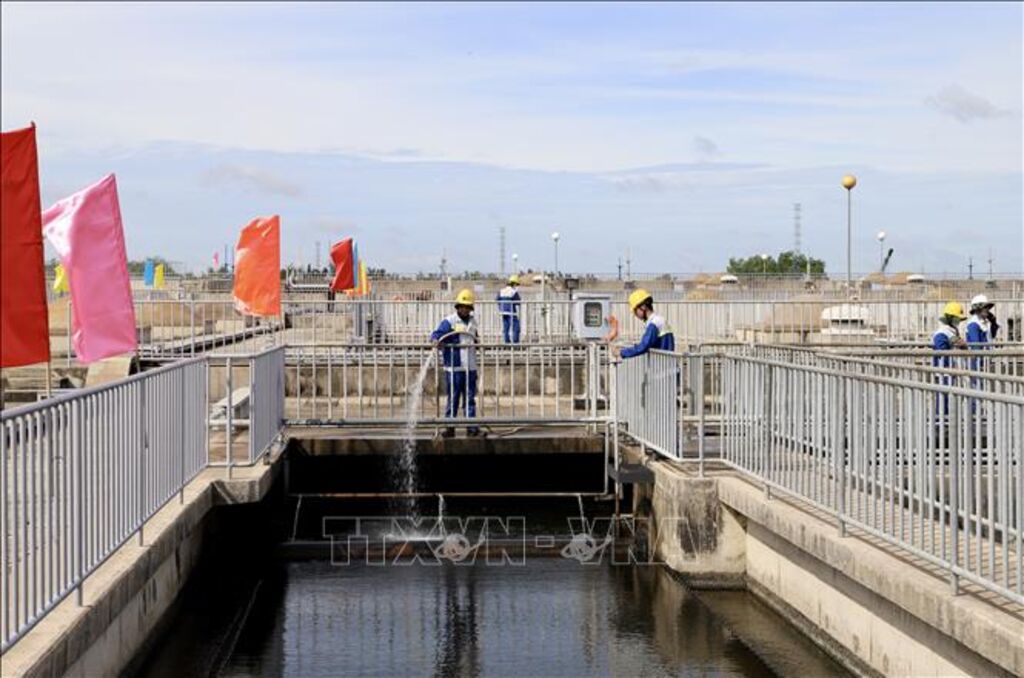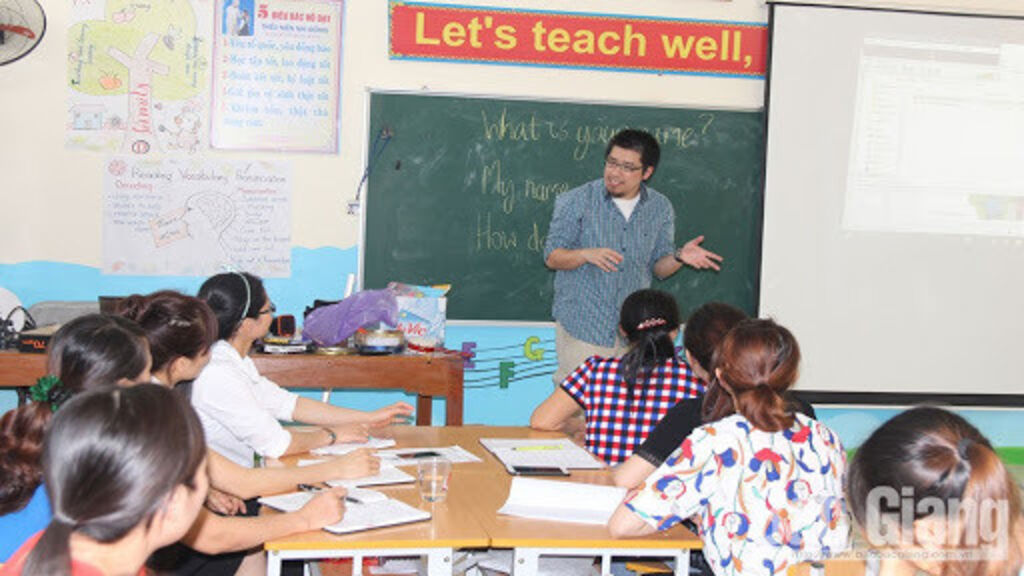 |
| Production of bicycle spare parts at Manh Quang Co., Ltd. in Hanoi__Photo: VNA |
From September 2025, several legal documents will take effect in Vietnam, ranging from incentives for supporting industry projects and stricter banking regulations to new standards on wastewater management and foreign language teaching in schools. Below is a summary of their key provisions.
Decree 205/2025/ND-CP: Expanded incentives on land, capital, technology, and human resources for supporting industry projects
Coming into force on September 1, the Decree provides that projects establishing facilities or research and development centers specialized in supporting industry products are eligible for land rent exemption and reduction under the land law, as well as financial support for research equipment investment from the Supporting Industry Development Program. Enterprises on the priority development list may receive support of up to 50–70 percent of expenses related to research, human resource training, technology transfer, quality inspection, brand development, and market promotion.
Organizations and individuals engaged in research and technology transfer for supporting industry products are entitled to preferential treatment from national funds and programs, such as the National Technology Innovation Fund and the National Science and Technology Development Fund. Enterprises are also eligible for financial support for product testing, inspection, verification, and quality certification.
In addition, the Decree introduces policies on legal assistance, environmental protection, and merger and acquisition consulting, while encouraging the establishment of technical support centers for industrial development. These measures aim to strengthen enterprise capacity, enhance value, and facilitate deeper participation in global supply chains.
 |
| The Binh Hung wastewater treatment plant, Ho Chi Minh city__Photo: VNA |
New national technical regulations on wastewater
A series of circulars issued by the Ministry of Natural Resources and Environment (now the Ministry of Natural Resources and Agriculture) introducing national technical regulations on wastewater will take effect on September 1. These include Circular 04/2025/TT-BTNMT on livestock wastewater; Circular 05/2025/TT-BTNMT on domestic and urban wastewater; and Circular 06/2025/TT-BTNMT on industrial wastewater.
Under Circular 04/2025/TT-BTNMT, livestock wastewater, when connected to urban or residential wastewater collection and treatment systems, must comply with the requirements set by the systems’ owners, management or operation units, or local government regulations.
Circular 05/2025/TT-BTNMT specifies that certain business and service establishments generating wastewater are managed as sources of domestic wastewater. These include accommodation and food services; hotels; villas or apartments for short-term rental; guest houses; inns; boarding houses and similar facilities; and student dormitories.
Meanwhile, Circular 06/2025/TT-BTNMT sets limit values for pollutants in industrial wastewater discharged into receiving water bodies.
Decree No. 210/2025/ND-CP: Six categories of assets eligible for capital contribution to venture capital funds for innovative start-ups
Taking effect on September 15, the Decree amends and supplements certain provisions of Decree 38/2018/ND-CP on investment in small- and medium-sized innovative start-ups.
Under the new regulation, venture capital funds for innovative start-ups do not have legal person status. A fund may be established by a minimum of two and a maximum of 30 investors who contribute capital under the fund’s charter. Such funds may not contribute capital to other venture capital funds.
Six categories of assets eligible for capital contribution are: (i) Vietnamese dong (VND); (ii) land use rights; (iii) intellectual property rights; (iv) technology; (v) technical know-how; and (vi) other assets that can be valued in Vietnamese dong. Beyond cash, the expansion of eligible assets creates greater opportunities for innovative start-ups to access diverse resources.
The Decree also permits funds to place idle capital in savings deposits or certificates of deposit, while adding flexible investment forms such as share purchase rights and convertible instruments, alongside direct equity investment. Fund management and reporting mechanisms are more strictly regulated to enhance transparency and ensure investor accountability.
 |
| Customers are served at Shinhan Bank’s Hoan Kiem branch in Hanoi__Photo: VNA |
Circular 14/2025/TT-NHNN: Stricter capital adequacy requirements for commercial banks and branches of foreign banks
Effective from September 15, the Circular requires banks to maintain at least a common equity Tier 1 ratio of 4.5 percent, a Tier 1 capital ratio of 6 percent, and a capital adequacy ratio (CAR) of 8 percent. For banks with subsidiaries, these requirements apply on both a standalone and consolidated basis.
The new regulation introduces a Capital Conservation Buffer (CCB) and a Counter-cyclical Capital Buffer (CCyB). Accordingly, banks must gradually increase their capital reserves from 0.625 percent in the first year to 2.5 percent by the fourth year, thereby raising the minimum CAR to 10.5 percent. Profit distribution is permitted only when all required ratios are fully met.
The State Bank of Vietnam may also require certain banks to maintain higher capital adequacy levels if risks are detected, in order to safeguard financial system stability. These measures are expected to enhance transparency, strengthen market confidence, and support the sustainable development of the banking sector.
Circular 17/2025/TT-NHNN: Amendments to payment regulations in Vietnam–China border trade
Also coming into effect from September 15, the Circular amends and supplements Circular 19/2018/TT-NHNN on foreign exchange management for border trade activities. Under the new provisions, payment methods are broadened to allow transactions through banks in freely convertible foreign currencies, in Chinese yuan (CNY), or in Vietnamese dong (VND) via border bank branches. Payments may also be settled by offsetting differences arising from import–export transactions.
The Circular further revises periodic reporting obligations. On a quarterly basis, by the 20th of the first month of the following quarter, banks with border branches must submit reports using new templates to the State Bank. Several provisions and annexes of Circular No. 19/2018/TT-NHNN are repealed or replaced to better align with practical requirements and bilateral agreements.
 |
| An Engligh teaching class by a foreign teacher__Photo: bacgiang.gov.vn |
Decree 222/2025/ND-CP: New regulations on foreign language teaching and learning in schools
Effective from September 25, the Decree allows general education institutions implementing Vietnam’s national curriculum to conduct teaching and learning of certain subjects or educational activities in foreign languages, or to deliver selected content of such subjects and activities in foreign languages. Priority is given to mathematics, natural sciences, technology, and informatics.
Teachers must be required to meet prescribed professional qualifications and minimum foreign language proficiency standards. Students may participate in foreign language–medium learning on a voluntary basis and may be subject to entrance assessments prior to admission.- (VLLF)









